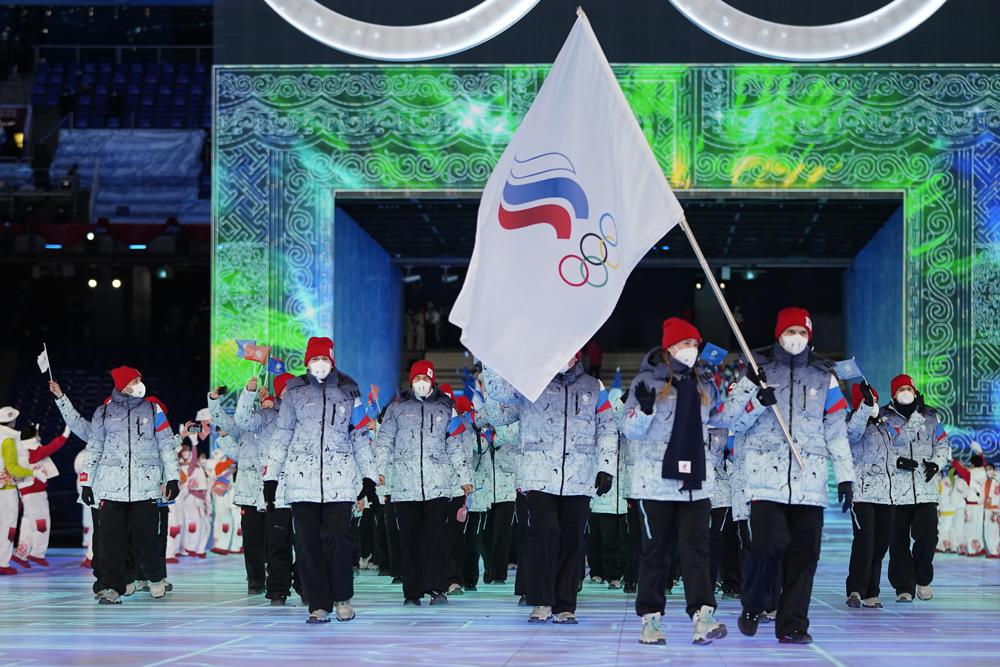Secondary menu
Competition and Conflict: Banning Russian Athletes from the Olympics
By: Jason Quinn (1L) Photo: AP Photo/Jae C. Hong
Photo: AP Photo/Jae C. Hong
It has been over a year since Russia's illegal invasion of Ukraine and international efforts to navigate the conflict without escalating it have produced a number of controversies. While some of these issues raise novel concerns, the movement to ban Russian athletes from participating in the 2024 Paris Olympics is reminiscent of a longer history of Olympic diplomacy. To this day, the Olympics continue to serve as an arena responding to geopolitical tensions and human rights concerns surrounding the actions of participating states. Their history provides some insight into the possible impact of banning Russia from participating in the 2024 Games, but questions remain about the legal implications of such a ban.
The Olympics provide a uniquely publicized opportunity to make a statement, with more than 2 billion people having watched the most recent games in Beijing. While apolitical in theory, the Olympics have been a forum for political statements on numerous occasions. The Council on Foreign Relations, a foreign policy think tank based in the United States, reports that athletes have used the Olympics as a stage for political demonstration from as early as 1906.
Protests by participating athletes come to mind. The Olympics have also been repeatedly subject to boycotts and exclusions stemming from geopolitical issues throughout history. For example, the International Olympic Committee (IOC) did not invite defeated states following the World Wars to participate. During the Cold War, the Games were riddled with boycotts by Eastern and Western allies. Yugoslavia was excluded from the 1992 Summer Games in Barcelona as a part of sanctions imposed by the UN Security Council for acts of aggression against Bosnia-Herzegovina. Perhaps the most glaring example of an Olympics ban tied to a state’s human rights violations took place in 1964, when the IOC banned South Africa from more than 12 Olympic competitions over apartheid. Most recently, calls to boycott the 2022 Beijing Olympics gained traction in response to the Uyghur genocide.
Russia is no stranger to being excluded from the games in some capacity – it is currently coming out of a 4-year ban tied to a doping scandal, which took effect in 2019. While the Russian team was not able to formally participate, Russian athletes were allowed to compete under the banner of the “Russian Olympic Committee.” The difference with current calls to ban Russia from Paris 2024 is that it would prevent all Russian athletes from competing in any form. Restricting participation by athletes based on their nationality creates new problems for athletes, states, and the IOC.
Banning athletes is not a new phenomenon, but the inherently political nature of complete national bans in response to human rights abuses warrants additional considerations. While the IOC must worry about the social, political, and economic ramifications of either allowing or excluding Russia from the games, a ban also poses legal questions rooted in the Olympic Charter (“the Charter”). The fundamental principles of Olympism outlined in the Charter arguably suggest contradictory courses of action. On the one hand, the second fundamental principle of the Charter promotes a "peaceful society concerned with human dignity." This can hardly be reconciled with inaction in the face of human rights violations. However, sanctions against athletes from states engaging in such conduct would likely run afoul of the fifth principle, which prescribes “political neutrality” by the Olympic Movement. Ideally, when such apparent contradictions in the Charter pose a problem in practice, these would be resolved by bringing a claim to a specialized forum like the Court of Arbitration for Sport (CAS), which was initially intended to respond to legal controversies tied to the Olympics.
Athletes with legal grievances pertaining to the Olympics are required to submit their dispute to the CAS, which has an ad hoc division to deal with the Olympic games. The Olympic ad hoc division arbitrates disputes pursuant to the Olympic Charter, and other applicable regulations. By adhering to s. 59 of the Olympic Charter, for example, the CAS would be likely to uphold a ban enacted by the IOC, even if it is conditional. Moreover, recent CAS decisions confirm that the requirement to compete as a neutral athlete, with limited national indicators, is not contrary to human rights.
Still, according to a report by law students Tim Matthews, Kara McKay, and Tanveer Hussain, the CAS is less bound to rigid precedential decision-making. Therefore, even though past jurisprudence has tended to support the inclusion of all athletes in the Olympics – at least as neutral participants – the CAS would likely rule in favour of a ban supported by the IOC under the Charter. However, there must be a dispute for the CAS to get involved. The IOC has announced their support for the participation of Russian athletes as neutrals in the 2024 Olympics, making a CAS appeal from individual athletes unlikely.
The International Paralympic Committee (IPC), for its part, has already permanently banned Russian and Belarusian Paralympic teams from competition for their national roles in the invasion of Ukraine. The Russian Paralympic Committee did not compete in the 2022 Beijing Olympics. It sought an appeal at the CAS, but IPC rules do not include an arbitration clause, which prevented the action from moving forward in that particular forum. However, the IOC is distinct from the IPC, and may be less willing to take a similarly forceful stance against the human rights violations committed by Russia in Ukraine.
